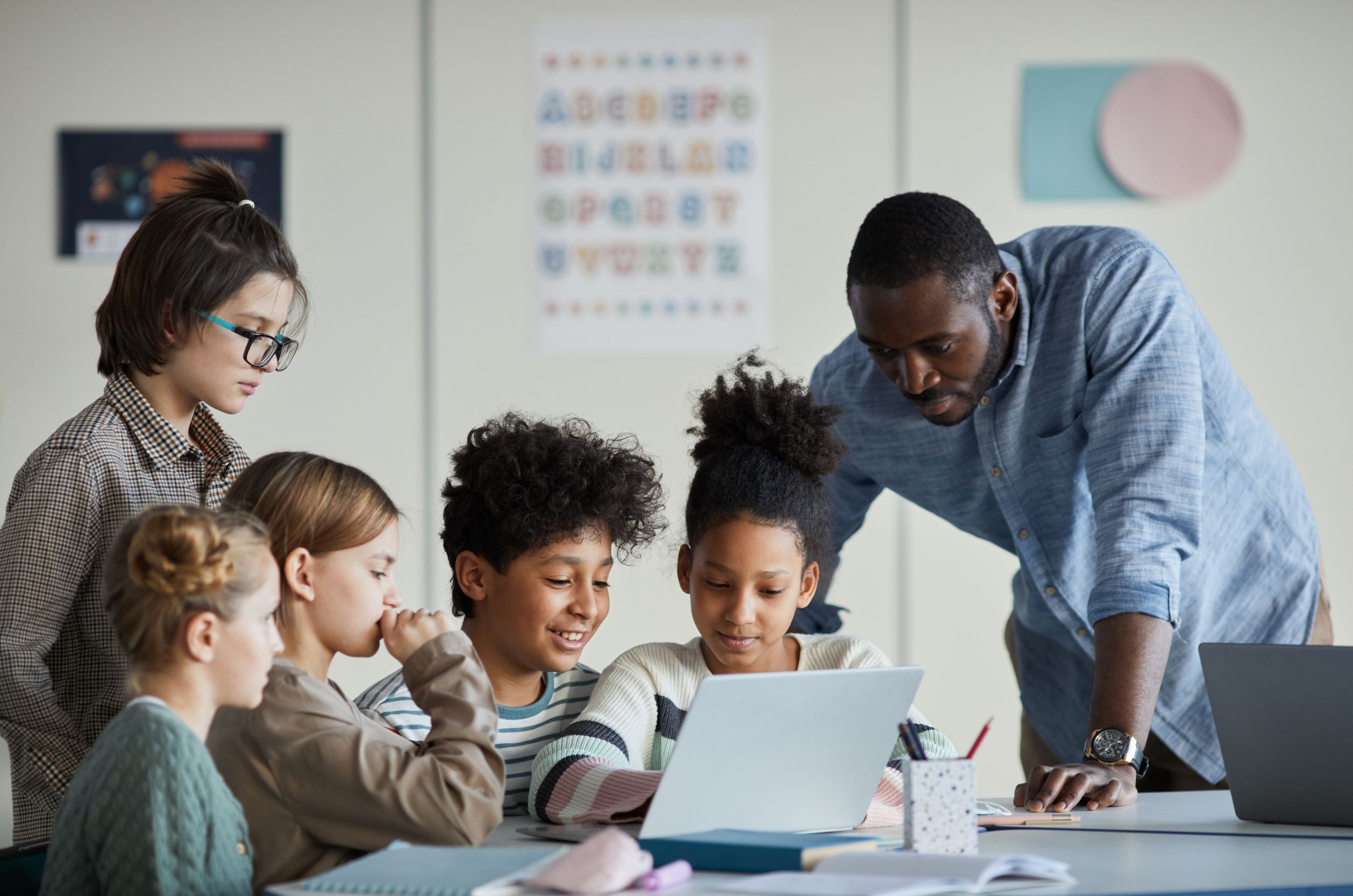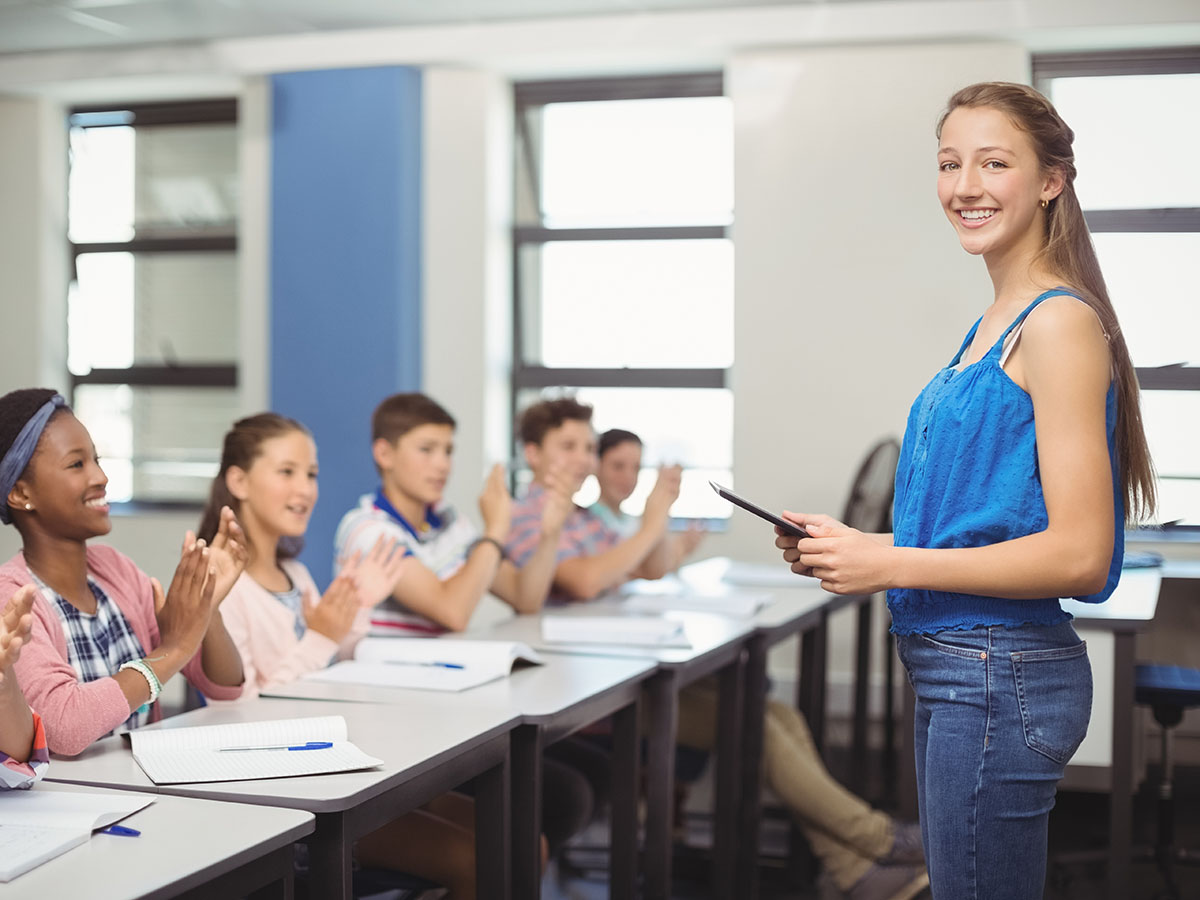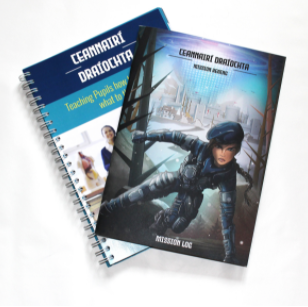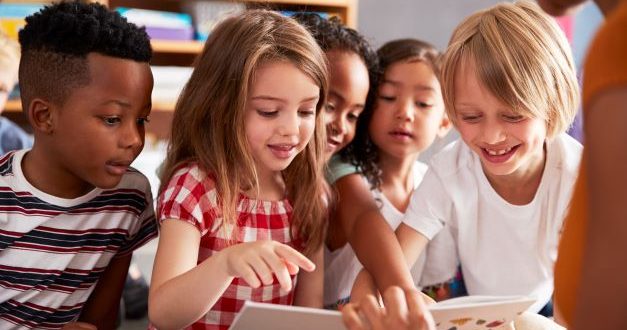What is Peer-Led Learning (PLL)?
A lesson we often teach our children is to 'work together' and to 'help each other'. These are skills we as adults try to implement into both our working and personal lives. Peer-led learning (PLL) refers to situations where peers support each other in learning processes, work together and help each other. An easy way to instil this 'teamwork approach' in the minds of our children and pupils would be to ensure they are taught and experience this approach at schools and at home. A really simplistic example of peer-led learning in the classroom would be allowing students to correct each other's work. When students finish the lesson, ask them to swap with their neighbour. Allow pupils to offer feedback to their friends on the work they have completed.
The Benefits of Peer-Led Learning or PLL
Let's explore some of the benefits of peer-led learning;

Which 21st Century skills can peer-led learning help us implement into the classroom?
In our research, we found that peer-led learning can help with at least 6 out of the 12 21st Century Skills. These being;
Collaboration: When students work together in groups, they are working towards a common goal. Collaborating as a team teaches invaluable skills, such as; teamwork, empathy, emotional self-regulation, that pupils can take with them throughout their secondary school, university and professional lives.
Communication: Communication is essential to working as part of a group and in peer-led learning. Being able to effectively communicate your thoughts and feelings, both verbally, non-verbally and in any life scenario is a key factor to success.
Leadership: Every group needs a leader. Peer-led learning in primary schools empowers young people to experientially develop leadership skills to direct a group and take control of a situation.
Initiative: With leadership comes the need to take initiative. If we teach children the skills of taking initiative, to become great communicators and become great leaders, we are building the foundations of highly independent individuals. Pupils who are able to take their own initiative will excel in independent study and in a working environment.
Social Skills: Social skills can only be learned in social situations. Solely focusing on independent learning will lend to characteristics of students who are introverts. Social skills have always been important and will continue to be a vital skill into the 21st century and beyond. PLL can help develop social skills by encouraging students to work together.
Frequently Asked Questions (FAQs)
What is Peer-Led Learning (PLL)?
Peer-Led Learning (PLL) is an approach where students support and learn from one another by working together, sharing ideas, and offering feedback. Rather than learning only from the teacher, pupils actively participate in their own learning through collaboration.
How does peer-led learning work in the classroom?
Peer-led learning can be as simple as students correcting each other’s work, working in small groups, or discussing ideas together. Teachers guide the process while students take responsibility for contributing, listening, and problem-solving as a team.
What are the main benefits of peer-led learning?
The key benefits of peer-led learning include increased motivation, improved confidence, stronger communication skills, and a more engaging learning environment. Pupils often feel more comfortable learning alongside peers, which can boost participation and morale.
How does peer-led learning improve motivation?
When students work with classmates, learning becomes more interactive and enjoyable. Group tasks often create excitement, healthy competition, and a shared sense of achievement, which increases motivation and engagement.
Does peer-led learning support different learning styles?
Yes. Peer-led learning allows students to share ideas in different ways, listen to alternative perspectives, and learn through discussion, collaboration, and practical activities. This creates a more personal and inclusive learning experience.
What is cooperative learning and how does it relate to PLL?
Cooperative learning is a teaching strategy closely linked to peer-led learning. It involves small groups with mixed abilities working together towards a common goal. Each group member is accountable, and success depends on teamwork and communication.
Which 21st Century skills does peer-led learning support?
Peer-led learning supports several 21st Century skills, including critical thinking, collaboration, communication, leadership, initiative, and social skills. These skills are essential for success in education, work, and everyday life.
How does peer-led learning develop leadership skills?
Peer-led learning gives pupils opportunities to take on leadership roles, guide discussions, and support others. This helps children build confidence, responsibility, and the ability to manage group tasks effectively.
Can peer-led learning help children build social skills?
Yes. Social skills are best learned through interaction. Peer-led learning encourages pupils to listen, share, cooperate, and communicate, helping them develop confidence in social and group settings.
Is peer-led learning suitable for primary school students?
Absolutely. Peer-led learning is highly effective in primary schools when structured appropriately. It helps young learners build teamwork, communication, and independence in a safe, supported environment.
How can teachers introduce more peer-led learning into lessons?
Teachers can start by incorporating group activities, peer feedback, and collaborative tasks into lessons. Using structured programmes, such as Zeeko’s Magical Leaders programme, can also support effective implementation.
What is Zeeko’s Magical Leaders programme?
Zeeko’s Magical Leaders programme is a peer-led learning initiative designed to develop 21st Century and transversal skills in pupils. It includes ready-to-use lesson plans and is currently free to schools in Ireland, funded by Enterprise Ireland.
Explore Zeeko’s Home Page to discover our mission on the About Us Page, innovative Phone Blocking System, and engaging Phoenix Quest 10 programme. We provide Internet Safety Seminars, the Zeeko Report Card, and the Magical Leaders Choose Country initiative, alongside insights from our Digital Trend Report. Stay connected with us on Facebook and Instagram for updates.

